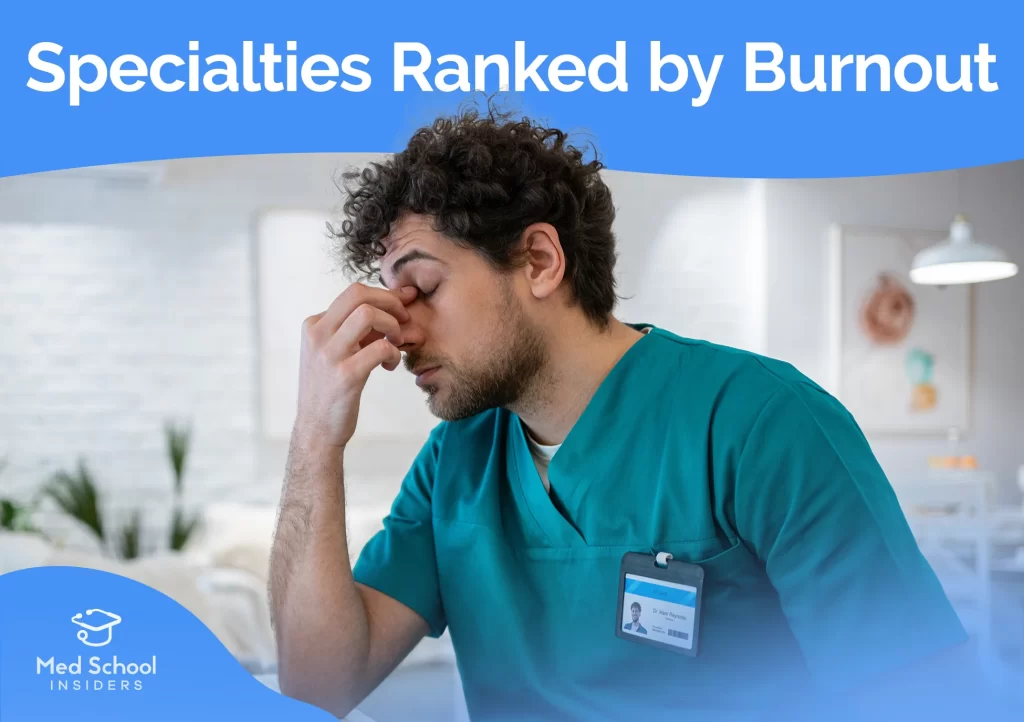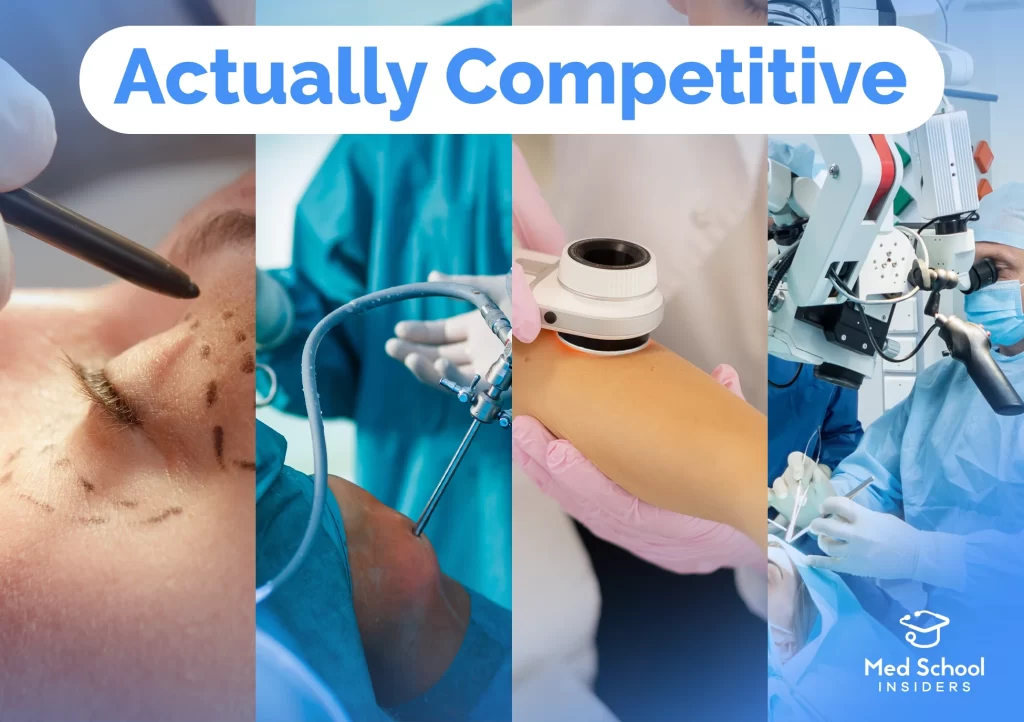Are you considering a career as an obstetrician and gynecologist? With so many specialties to choose from and your future on the line, it’s one of the most challenging decisions medical students have to make.
This guide will cover the pros and cons of becoming an OB/GYN physician, from dealing with messy deliveries to the highest malpractice risks in medicine to getting to experience the miracle of life on a daily basis.
There are so many different factors to account for when choosing a specialty, including how many years you’ll spend in training, whether or not you’ll perform procedures, the level of patient interaction you’ll have, your practice setting, the people you’ll work with, your work-life balance, how much you’re paid, and more.
This series takes a deep dive into the career of an OB/GYN physician from the perspective of Dr. Kevin Jubbal. He outlines the factors he considered and why he ultimately did not choose OB/GYN as his specialty. That said, rest assured that this guide includes both sides of the story, outlining the pros and cons of pursuing OB/GYN.
For a completely unbiased look at OB/GYN, including more details into the daily life of an obstetrician and gynecologist and the exact steps to take to become one, also check out our guide to How to Become an Obstetrician and Gynecologist (So You Want to Be…)
OB/GYN Pros — What I Liked
1 | Surgical and Procedural Work
OB/GYN is one of the few specialties that offers a true blend of medicine and surgery.
If you want to do procedures but also enjoy longitudinal patient care, OB/GYN doesn’t make you choose but instead offers a unique balance.
Gynecologic surgery is very much real surgery. After all, hysterectomies, myomectomies, and advanced laparoscopic and robotic procedures require significant skill and precision.
There’s a lot of hands-on work, and if you don’t want to be stuck behind a desk all day, OB/GYN gives you plenty of action.
2 | Acute & High-Stakes Cases
If you thrive in high-pressure situations, OB/GYN delivers.
You’re dealing with true medical emergencies—postpartum hemorrhage, eclampsia, uterine rupture, and more.
The adrenaline rush of managing life-and-death situations keeps things exciting, and for those who love quick decision-making and urgent interventions, OB/GYN has that in spades.
3 | Hands-On & Procedural Variety
OB/GYN has a broad mix of procedures, from routine prenatal care to surgeries to in-office procedures like IUD placements or colposcopies.
The variety prevents burnout and keeps the work dynamic, which is something I value in a specialty.
4 | Meaningful Patient Impact
For many women, their OB/GYN is their primary doctor.
They may not see a primary care doctor regularly, but they’ll see their OB/GYN for routine checkups, pregnancy, and reproductive health.
This means OB/GYNs build lasting relationships with their patients, which can be incredibly meaningful for those who enjoy continuity of care.
Helping someone through pregnancy and childbirth—or even helping them navigate menopause or fertility challenges—gives OB/GYNs a significant role in their patients’ lives.
What I Didn’t Like
1 | Not “Real” Surgery
Here’s something that will definitely ruffle some feathers.
There’s a stereotype in medicine that OB/GYN isn’t “real” surgery, and while OB/GYNs themselves would never say that, plenty of other surgeons will say that very thing behind closed doors.
The difference comes down to precision. In most surgical fields, meticulous dissection and careful suturing are the norm. But in OB/GYN, speed takes priority—especially with C-sections, which often look like the surgical equivalent of a pit stop at the Indy 500.
Even suturing techniques are less refined and more rushed. This makes sense given the time-sensitive nature of OB/GYN emergencies, but it does contribute to the perception that OB/GYN is a different breed of surgery.
Gynecologic surgery, on the other hand, is much closer to traditional surgery, especially in oncology and minimally invasive procedures.
2 | Malignant Culture & Toxic Work Environment
OB/GYN has a well-known reputation for brutal residency training, which involves long hours, frequent overnight call, and a malignant culture where residents are often overworked and under-supported.
The “eat your young” mentality is alive and well in some programs—many attendings treat med students and junior residents like disposable labor rather than future colleagues.
3 | Childbirth: Beautiful or… Messy?
There’s a big difference between watching your own child being born versus delivering a stranger’s baby.
When it’s your family, the emotion of the moment overpowers everything—the fluids, the smells, the chaos. It’s an unforgettable, deeply personal, and profound experience.
But when it’s not your family? It’s just another delivery. And honestly, it can be messy. Feces, amniotic fluid, meconium—it’s all part of the job, and it’s not for everyone.
If you’re someone who finds the beauty in every birth, you’ll love it. If you don’t… well, OB/GYN might not be for you.
4 | Medical-Legal Nightmare
OB/GYN has one of the highest malpractice risks in medicine.
Birth complications, neonatal injuries, and bad outcomes—whether preventable or not—often lead to lawsuits.
Even if you did everything right, you can still get sued because parents are, understandably, devastated and looking for someone to blame.
Many OB/GYNs eventually quit L&D altogether to avoid the legal stress.
5 | Mid-level Scope Creep
OB/GYN is a primary care specialty at its core, and that makes it a massive target for mid-level encroachment.
Nurse practitioners and physician assistants are already taking over a large portion of women’s health visits. Certified nurse midwives (CNMs) are managing deliveries with minimal physician oversight, and in some states, they have full autonomy.
Future projections suggest that mid-levels will continue to gain ground, and as they do, the job market for OB/GYNs will become even more competitive.
If you’re considering OB/GYN, this is something to think about, especially if autonomy and job security are important to you.
Is OB/GYN the Right Career for You?
So, is OB/GYN right for you?
It all depends on which aspects of medicine you’re most excited about.
If you find immense joy in the beauty and miracle of life, then OB/GYN might be your specialty.
Some people are truly passionate about pregnancy, childbirth, and reproductive health—and for them, the long hours and challenges are worth it.
But if you’re looking for true surgical precision, want a residency with a more positive culture, or aren’t a fan of long L&D shifts and overnight call, OB/GYN might not be the best fit.
Ultimately, the right specialty is the one where the worst parts are bearable and the best parts make you excited to get out of bed in the morning.
At the end of the day, only you can decide if the pros outweigh the cons. Take the time to determine what career path is the best fit for you. We have multiple series here on the Med School Insiders website as well as on our YouTube channel that dig into the ins and outs of what each career path is like.
If you want to learn more about OB/GYN, check out So You Want to Be an OB/GYN.









